Stressed from being overworked? Had a long day at your workplace with deadlines closing in, and your brain seems numb and foggy? If you answered yes to all these questions, then chances are you have an overworked mind.
Work stress can often ruin your productivity, and in this fast-paced world, you have to be on your toes to catch up with the flow. An overworked brain can often lead to burnout. So, if you are suffering from the same and want to calm that overwhelming feeling, then you have come to the right place!
So, what is overworking exactly? Overworking occurs when you work extensively and feel exhausted because of it. As a result, you don’t get any time to relax.
But what causes overwork? In this competitive world, most of us embrace the core beliefs of hustle culture. We tend to work more to grow fast and in order to put ourselves out there, we often forget how to take a break and prevent overworking.
Related: Overthinking Before Sleep? 8 Ways To Avoid Racing Thoughts At Night And Sleep Better
Causes of an Overworked Mind
An overworked mind can take a toll on both your physical and mental health. Now, let’s find out the probable causes of an overworked mind:
- Long hours at work
- Excessive workload
- High-stress levels
- Lack of sleep and rest
- Lack of self-care
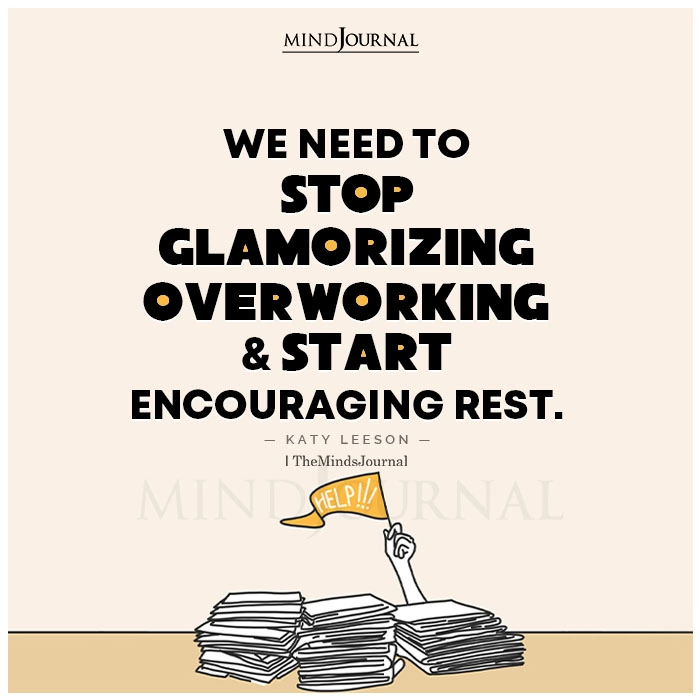
Am I Overworked? Effects Of An Overworked Mind
As we learn about the causes of overworking, let’s understand the effects of overworking the brain and how overworking affects your mental health:
1. Decreased productivity and creativity
When you work excessive hours without taking breaks, you can become physically and mentally exhausted, leading to decreased energy levels and a reduced ability to focus. This can make it difficult to complete tasks efficiently and effectively, ultimately decreasing your overall productivity.
2. Increased anxiety and stress
Overworking at work can exhaust your brain, causing stress and worry. And the more you keep on doing this, the more your anxiety grows with time.
3. Weakened immune system
This is one of the major symptoms of overworking. Chronic stress and overworking can take a toll on your body and affect its ability to fight off illness. When you are under stress, your body releases hormones such as cortisol and adrenaline, which can suppress the immune system. This can make you more susceptible to infections and illnesses.
Related: How To Prevent Burnout: 13 Signs You’re On The Edge
4. Depression and burnout
When you work excessively long hours and don’t have time for self-care and leisure activities, you can become physically and mentally exhausted. This can lead to feelings of hopelessness, worthlessness, sadness, physical and emotional exhaustion, feelings of cynicism and detachment from work, and a reduced sense of personal accomplishment.
5. Reduced ability to concentrate and make decisions
Working extensively can hinder your concentration levels, leading to certain overworked brain symptoms like forgetfulness and difficulty in decision-making.
6. Painful headaches
Prolonged periods of physical and mental stress can lead to muscle tension, which can cause headache pain. This type of headache is often felt as a tight band around the forehead or at the base of the skull, and it can be accompanied by neck and shoulder pain.
7. Fatigue, and muscle tension
This is one of the subtle signs you are overworked.
When you work long hours and don’t get enough sleep or physical activity, your body can become exhausted, leading to feelings of tiredness and a decreased ability to concentrate. Overworking can also affect your appetite and digestion, leading to changes in weight and energy levels.
Now that we have got a brief idea about what an overworked mind is, let’s find out some of the potential ways to relax it.
Related: 13 Unhealthy Habits That Reveal A Workaholic
8 Things You Can Do To Relax An Overworked Mind
If you’re feeling overworked, here are some effective ways to deal with it.
1. Make sure that you work out every day, even if it’s for half an hour.
Working out can be a very effective way to relax if you feel like your mind is constantly in overdrive. Research shows that exercise is very beneficial for your body along with your overworking mind. It can also help reduce stress.
Wondering why stress your body when your overworked mind is already on the verge of exploding? The reason is exercise stimulates the production of endorphins, also known as the “feel-good” neuro element of the brain. It is a natural mood elevator and helps reduce stress and anxiety.
Exercising is one of the best things you can do for your mind and body as a way to relieve stress and maintain a healthy balance in your busy life. From yoga and meditation to high-intensity workouts, choose any activity that suits your personal preferences and be consistent with it to clear your mind and recharge your batteries.
However, you should be careful while working out. Don’t stress your muscles too much in the process of de-stressing your mind.
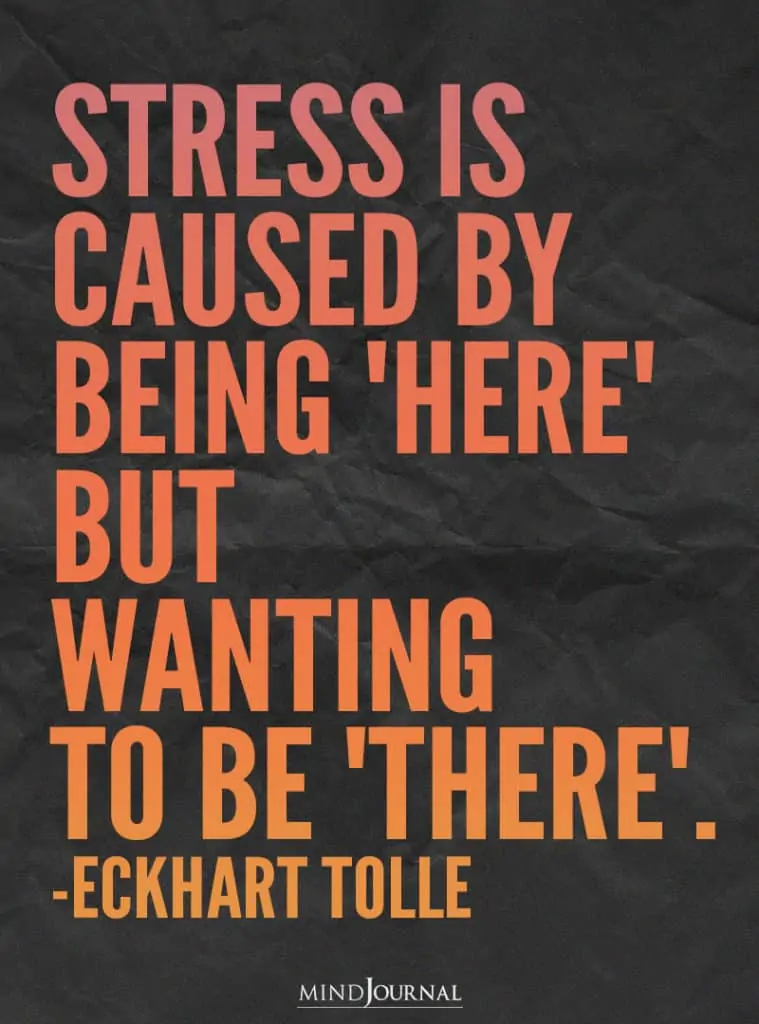
2. Practice mindful meditation every day.
Meditation has been a tried and tested formula to deal with the signs of overworking such as stress and anxiety for years. It’s a simple yet effective way to calm your overworked mind. Not only that, it brings peace and clarity into our busy life.
According to Hanh, mindfulness is a magical force that quickly gathers our scattered thoughts and returns them to their state of entirety. Mindful meditation helps to improve productivity, heart rate, and blood pressure and lessens stress, anxiety, and distractions.
You can practice meditation for 10-15 minutes daily before sleep to decrease insomnia and fatigue. You just have to relax, sit straight, close your eyes, and take deep breaths. Try to maintain the rhythm of your breaths, and don’t stress your brain.
Moreover, you can turn on some relaxing and calming music to set the mood. You can easily find them on Spotify and YouTube.
Whether you are a seasoned meditator or a newcomer, including mindful meditation in your daily routine will help you to relax your overworked mind and will also help you focus more on your work and daily life without stressing out too much.
Related: Quiet Quitting: A Mental Health Movement Or An Anti-Work Movement?
3. Pause and take deep breaths whenever you feel overwhelmed.
Have you ever noticed your breathing pattern and how it changes when you are tense? Usually, we are too busy to observe these signs of being overworked. Deep breathing is one of the most effective ways to calm down your nervous system and busy mind.
Studies show that deep breathing helps you to relax your mind and body and reduce stress and anxiety. It also can help in managing negative emotions and thoughts.
The box breathing technique is proven to help calm your over-wrought mind. There are a few simple steps to practice this method, and they are as follows:
- First step: Inhale through your nose on the count of four.
- Second step: Hold your breath for a count of four.
- Third step: Breath out for another count of four.
- Fourth step: Hold your breath again for a count of four.
- Repeat the process.
Try this method every night before sleep. If you are a beginner and struggle with breathing, you can start it with 2 seconds instead of 4 seconds for each step.
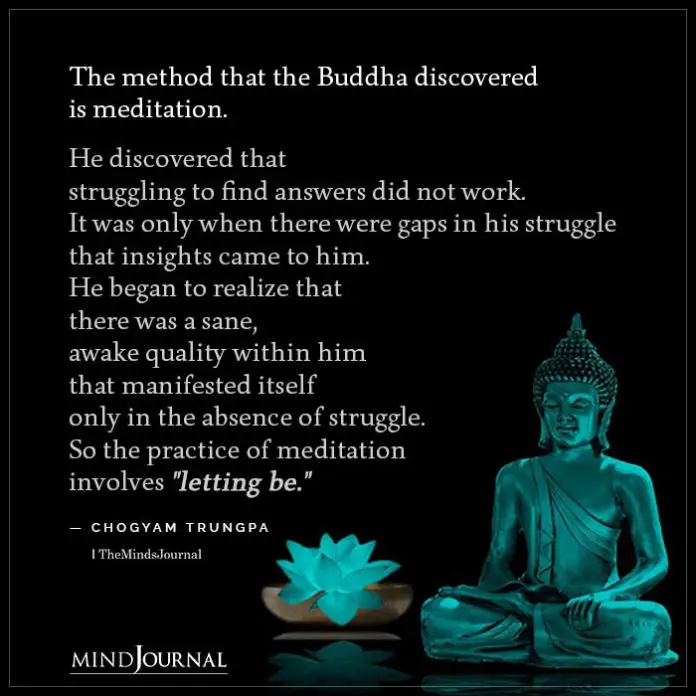
4. Try reading a book
Reading books can help you to escape repetitive thoughts. It is an excellent way to take your mind off of work and helps you escape from constant thoughts of work and deadlines. If you are a bookworm, you know how it feels to lose yourself in your favorite book.
You can choose a quiet spot and a good book, and you are all set. Try to read something that will boost your mood and help you to relax.
Reading books is the best way to unwind and relax. You can practice reading a book for 30 minutes daily to de-stress your mind.
5. Write your thoughts down on paper.
If overwhelming thoughts are all over your mind, then it’s better to jot them down in a diary or a notepad. We often find it hard to share our thoughts with anyone because we are afraid of being judged.
Writing down your thoughts is a very good and effective way to vent your emotions and feelings. So, pen them down rather than carrying them all in your head.
Journaling daily can improve your mental health and reduce frustration, as well as anxiety. Writing down whatever is bothering you not only makes you feel relaxed but can also help to release unresolved emotions.
Writing in your journal is not always about planning your day or finding any solutions. Journaling at the end of the day can help release stress and improve sleep quality. It can also help you focus on something that is not related to your work.
Related: 25 Signs You are Already Successful and You’re Simply Unaware
6. Talk to someone.
If you have friends or family to rely on, you can always reach out to them. When you share your feelings with someone, it can help you to gain a different perspective; and this, in turn, relieves stress, anxiety, and other emotional baggage.
Communicating with someone who understands what you are feeling or going through helps you feel validated and comforted. Having someone who listens to you mindfully and with compassion can be a huge relief; it makes you feel understood.
Try calling a friend, and share your thoughts with them. You can also meet up with them and spend some quality time. Doing so will help you feel relaxed and lighthearted.
7. Try connecting with nature.
We are so obsessed with technology and gadgets that we often miss the chance to connect with nature. If your head feels overloaded with thoughts, here are some activities you can try to deal with overwork and connect with nature.
- Start gardening: You can go to the market, buy some saplings and plant it in your garden or terrace. Taking care of plants can distract you from impulsive thoughts.
- Take a walk: To connect with nature more deeply, you can walk in the park barefoot. You can also try the grounding technique. It is an effective way to relax your mind by connecting with the present moment and nature through your five senses.
- Camping: Camping is another way to connect with nature. You should take a break and go camping or trekking in the mountains or any nature park.
- Create with nature: Try to do some creative stuff in nature, like practicing dance, exercising, creating clay art, painting, etc.
Nature can always calm your mind and heal your soul. Therefore, take a break from modern life and embrace it.
8. Sleep for 7-9 hours every night to feel energized and well-rested.
One of the significant negative effects of overworking is fatigue. No matter how hard you try, you can’t get enough sleep in such a situation.
We know it’s not easy to maintain a healthy sleeping schedule in this fast-paced world, especially when you are dealing with constant stress and anxiety.
However, make it a point to sleep for 7-8 hours every night to relax your brain. Your brain stays active when you sleep, but it removes the toxins that build up in your brain while you are working.
It’s more like cleaning the cache files from your brain and rebooting for better performance. Moreover, it helps to relax the sympathetic nervous system in your brain and reduce blood pressure. Good sleep is one of the most important things in life when it comes to having a healthy body and mind.
Related: Remote Worker Burnout: 5 Key Tips To Create Healthier Remote Cultures
Relaxation is The Key To a Healthy Mind
Relaxation is the key to better mental health and physical well-being. An overworked mind can never be productive. So, stop overworking yourself and take a break; you deserve that.
Taking time to unwind and relax, can prevent burnout and helps you to maintain a work-life balance. Remember to take care of yourself and your mental health to restore your aura and energy.
Your body and mind will thank you for this.
How does overworking affect the brain?
Overworking can affect the brain by causing stress and fatigue, leading to decreased productivity and increased risk of mental health problems such as depression and anxiety.
Is an overthinking mind good?
Constantly overthinking can harm your mental health by causing extra stress and worry, reducing your ability to work effectively and potentially leading to mental health issues.
What is an overworked employee?
An overworked employee is someone who works excessively and experiences strain from their job responsibilities, leading to burnout at work, physical and mental fatigue, and low productivity.
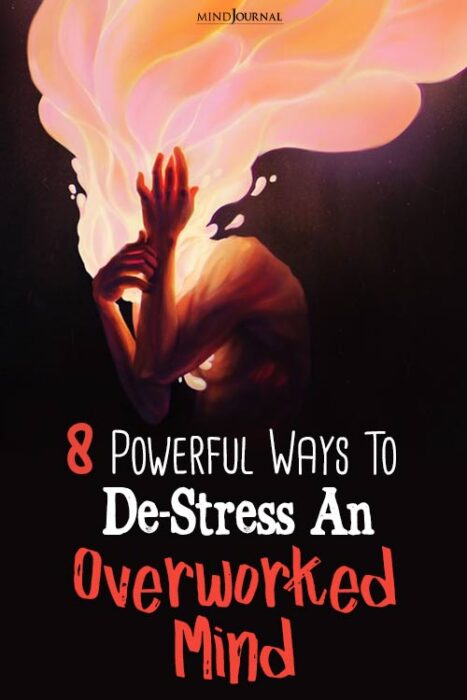
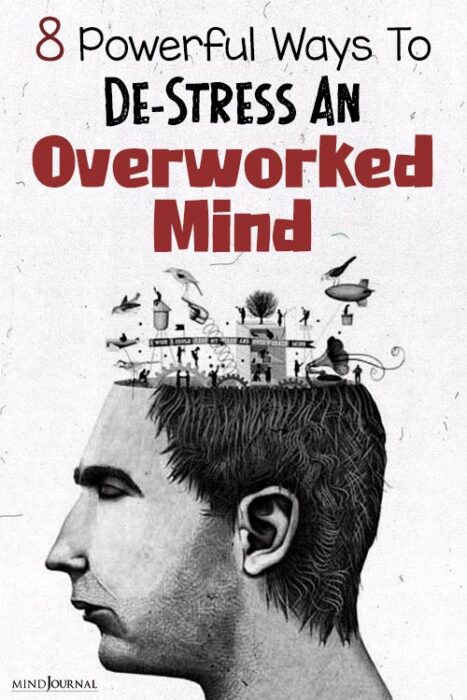








Leave a Reply
You must be logged in to post a comment.